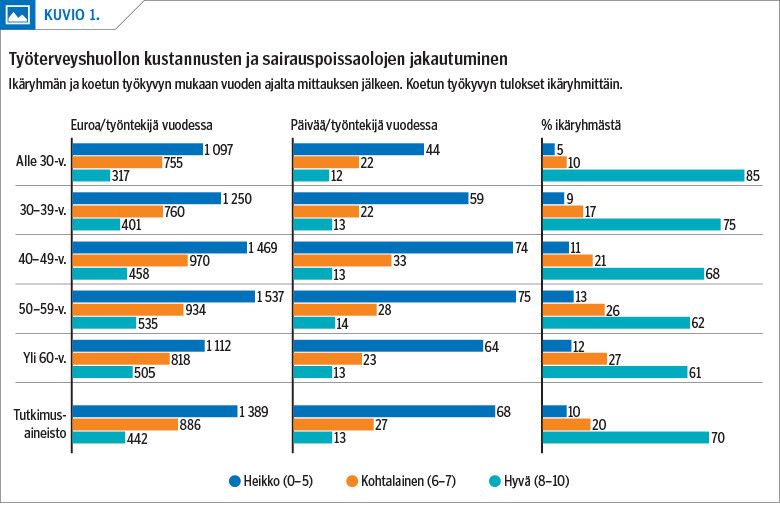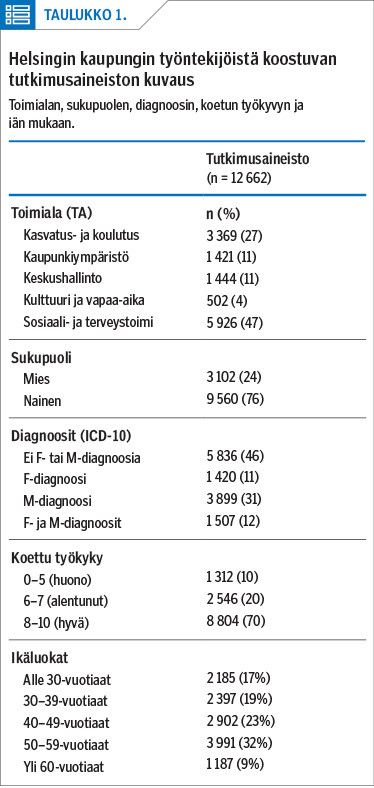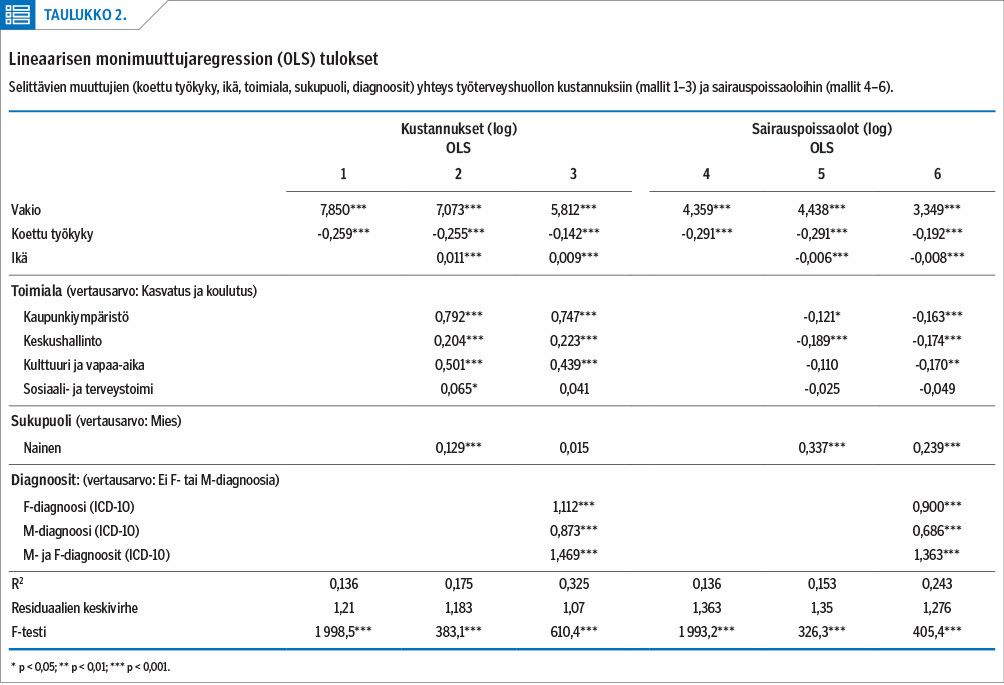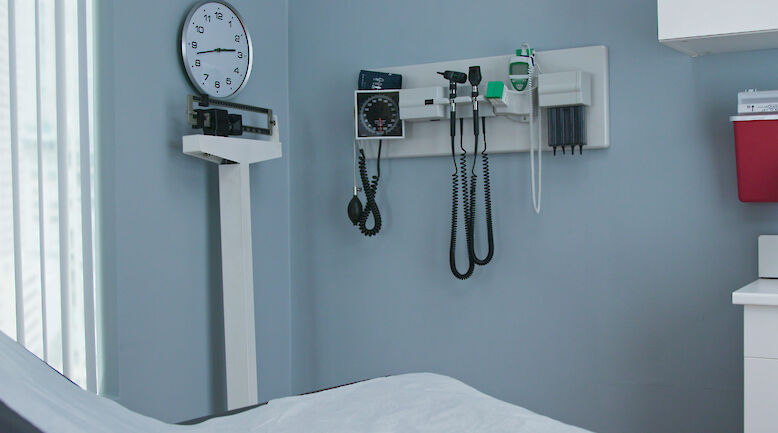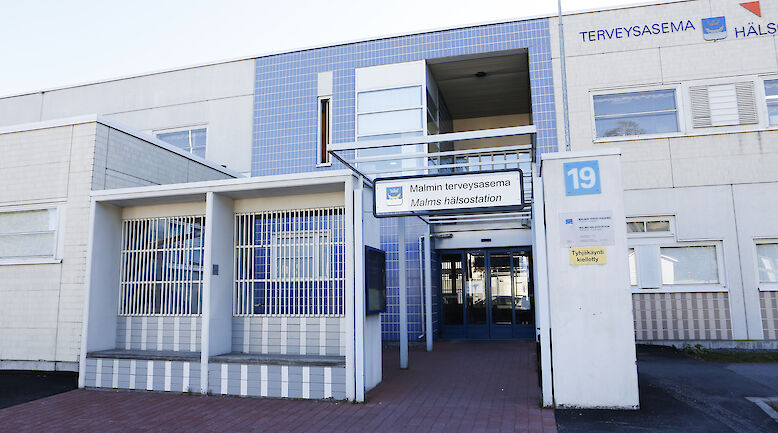Employees’ perceived work ability predicts sickness absences and occupational health care costs

Background More information and tools are needed to detect and prevent early work disability. In this registry study, the relationship between perceived work ability, occupational health care costs, and sickness absences was examined among the employees of the city of Helsinki.
Methods The study evaluated how employees assessed their work ability (on a scale of 0–10), how the assessment varied by age group, and what relationship existed between perceived work ability and sickness absences and annual occupational health care costs. This relationship was studied using descriptive statistical analysis and linear multivariable regression models. The research material consisted of 12 662 employees (one third of the employees) during the period of 1/2016–6/2018.
Results Seventy percent of the employees assessed their work ability as good (rating of 8–10), 20% as reduced (66 Nygård CH, Arola H, Siukkola A ym. Perceived work ability and certified sickness absence among workers in a food industry. International Congress Series 2005;1280:296–300.,77 Airaksinen J, Jokela M, Virtanen M ym. Prediction of long-term absence due to sickness in employees: development and validation of a multifactorial risk score in two cohort studies. Scandinavian Journal of Work, Environment & Health 2018;44:274–82.), and 10% as weak (0,11 Työterveyshuoltolaki 21.12.2001/1383. www.finlex.fi/fi/laki/ajantasa/2001/20011383.,22 Valtioneuvoston asetus hyvän työterveyshuoltokäytännön periaatteista, työterveyshuollon sisällöstä sekä ammattihenkilöiden ja asiantuntijoiden koulutuksesta 1.1.2014. https://www.finlex.fi/fi/laki/alkup/2013/20130708.,33 Ilmarinen J. The Work Ability Index (WAI). Occupational Medicine 2007;57:160.,44 Ahlström L, Grimby-Ekman A, Hagberg M, Dellve L. The work ability index and single-item question: associations with sick leave, symptoms and health – a prospective study of women on long-term sick leave. Scand J Work Environ Health 2010; 36:404–12.,55 Saltychev M, Laimi K, Oksanen T, Pentti J, Kivimäki M, Vahtera J. Does perceived work ability improve after a multidisciplinary preventive program in a population with no severe medical problems – the Finnish Public Sector Study. Scand J Work Environ Health 2013;39:57–65.). The perceived work ability deteriorated as age increased but 15% of under 30-year-olds also assessed their work ability as weak or reduced. Deterioration of perceived work ability was significantly associated with an increase in sickness absences and the cost of occupational healthcare. Perceived work ability affected sickness absences and occupational healthcare costs more than age.
Conclusions Assessment of perceived work ability is a simple and inexpensive method that can support identification of the risk for work disability in occupational healthcare and other social care and healthcare settings.
